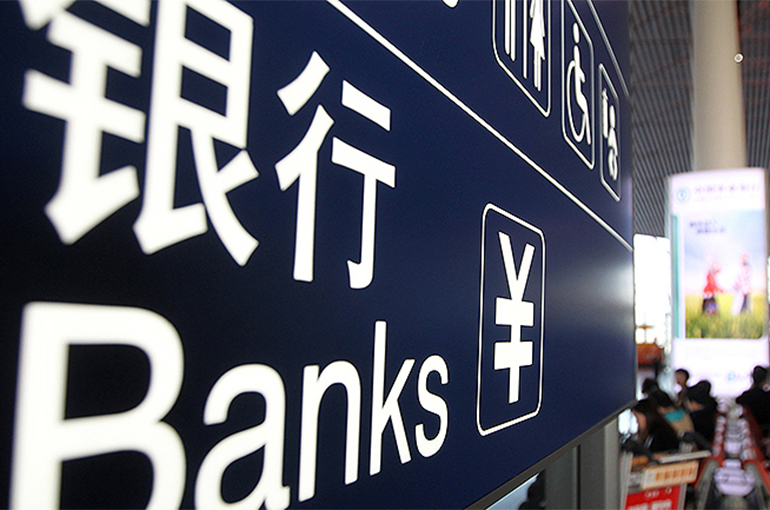 Chinese Private Banks Cut Deposit Rates Below 3% as Big Lenders Slash Loan Rates
Chinese Private Banks Cut Deposit Rates Below 3% as Big Lenders Slash Loan Rates(Yicai) March 12 -- Chinese private banks are moving toward deposit rates below 3 percent to be able to step up to the challenge of big lenders cutting their loan rates.
Ten of China's 19 private lenders have slashed their deposit rates this year. The annualized interest rates for many three-year deposit products already fell below the threshold of 3 percent.
For instance, Sichuan XW Bank, a private lender based in Chengdu, lowered the interest rate of its five-year deposit product to 3.35 percent from 3.55 percent on March 8. The corresponding three-year product will carry a rate of 2.75 percent instead of 3.15 percent.
It is common for private banks to attract clients with high deposit rates but they cover the difference with higher loan rates as small business owners tend to have a better chance of obtaining loans from these non-state-owned lenders and consequently, they are willing to accept more unfavorable terms. But now, private banks are lowering their deposit rates to be able to reduce their loan rates when necessary as big lenders intensify the competition.
Squeezed Spread
A credit manager of a state-owned lender said to Yicai that the bank's normal interest for corporate loans is around 3.35 percent. However, high-quality customers can enjoy rates as low as 2.8 percent.
In comparison, one small business owner said to Yicai that he recently secured a loan with an interest rate of around 10 percent from WeBank as he is not eligible for better deals.
"Further cuts on business loan interest rates by large state-owned and joint-stock banks have caused great pressures to our bank," an executive in charge of a private bank’s credit division said, adding that if the loan rate remains unchanged, existing corporate clients are expected to withdraw and become more eager to apply for loans at large banks if eligible.
Another factor that makes private lenders vulnerable is that micro firms and small and medium-sized enterprises, a major group of borrowers for these banks, are heavily exposed to slowing economic growth, which reduces loan demand.
The head of a credit department of another private lender said to Yicai that the financial company issued far fewer loans than expected last year because many existing clients are dealing with headwinds in business and they may face a real risk of bankruptcy.
Tight Capital Chain
Non-state lenders need to look into their interest rate spreads to keep their net interest margins in check but they also need to supplement capital to satisfy regulatory requirements.
Since the end of March 2020, private banks’ capital adequacy ratios have constantly declined, according to financial data provider Wind. As of Sept. 30, last year, their average capital adequacy ratio dropped to 12.15 percent, much lower than commercial banks' average of nearly 14.8 percent.
However, fundraising channels are limited. Among the 19 private lenders, only MYBank has succeeded in issuing perpetual bonds worth CNY4 billion (USD557.5 million), completing the issuance in 2021, while Hunan province-based Bank of Sanxiang managed to issue asset-backed securities last year.
An insider from a private bank said to Yicai that many domestic private lenders are not yet qualified to issue bonds without maturity because they are relatively new so their financial strength almost completely depends on their shareholders.
"Private banks are dealing with a lot of uncertainties in gaining further investment," noted Zeng Gang, director of the Shanghai Institution for Finance and Development.
Paths to supplement core first-tier capital are restricted so banks can only obtain added investment from existing shareholders or introduce strategic investors. However, whether they succeed or not depends on multiple factors including companies’ business performance, shareholders’ strength, and regulatory policies, Zeng added.
Editors: Tang Shihua, Emmi Laine